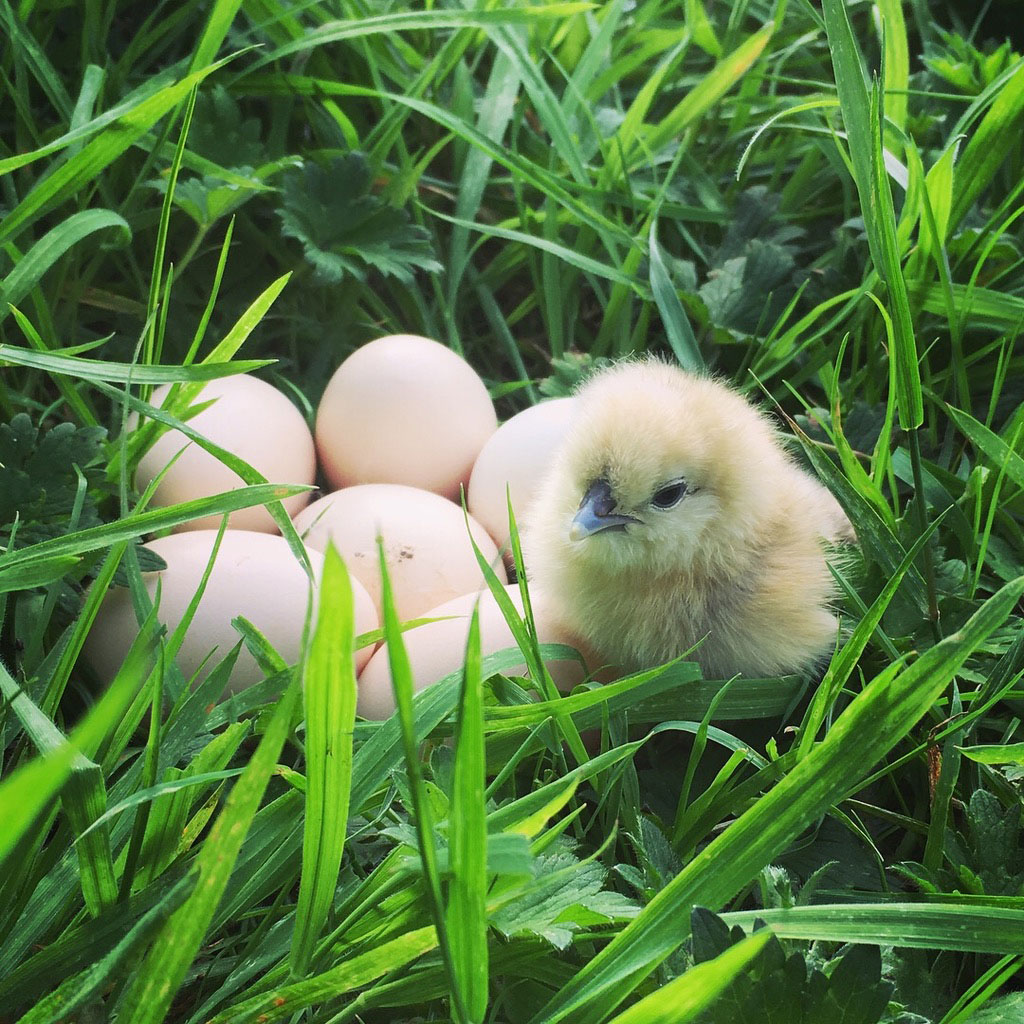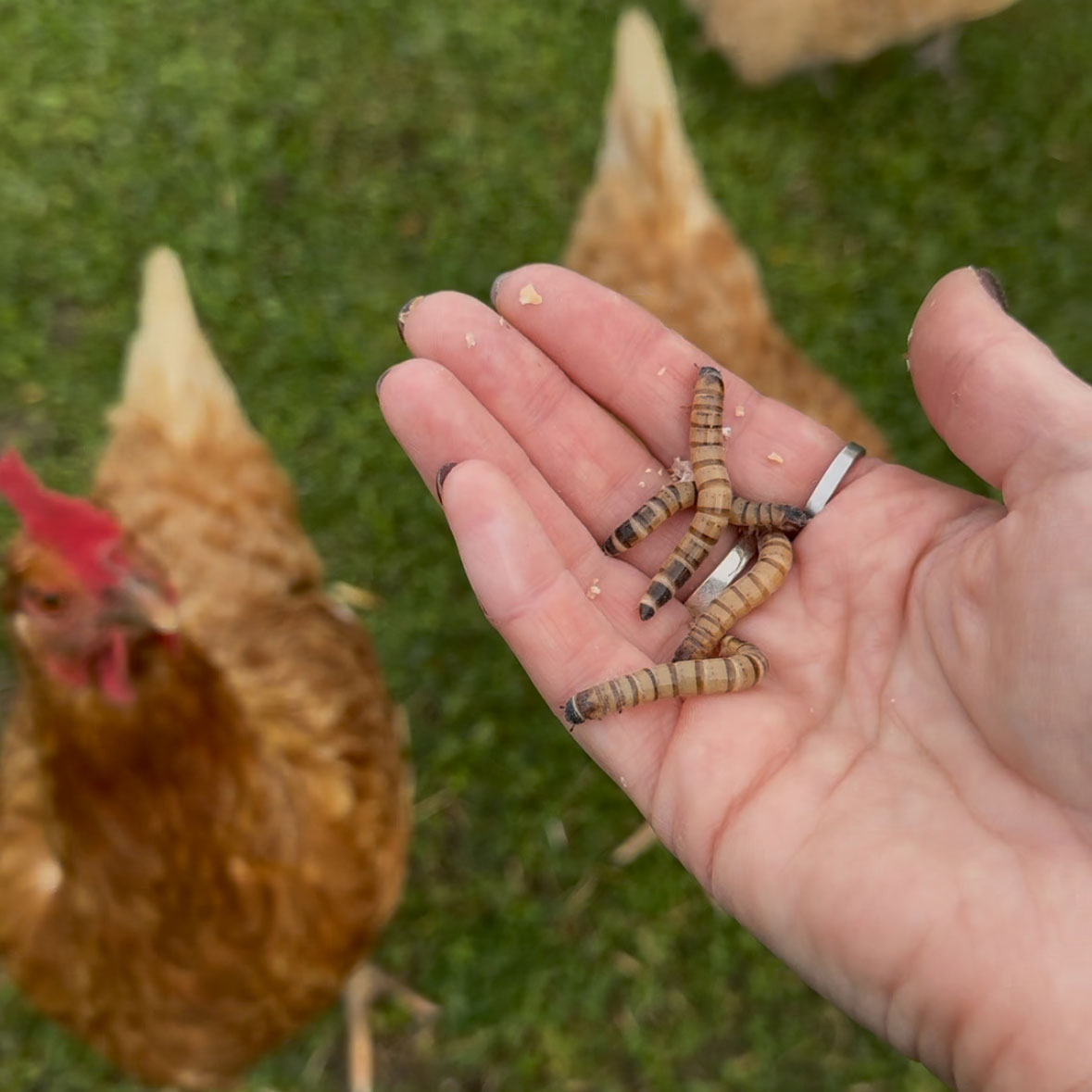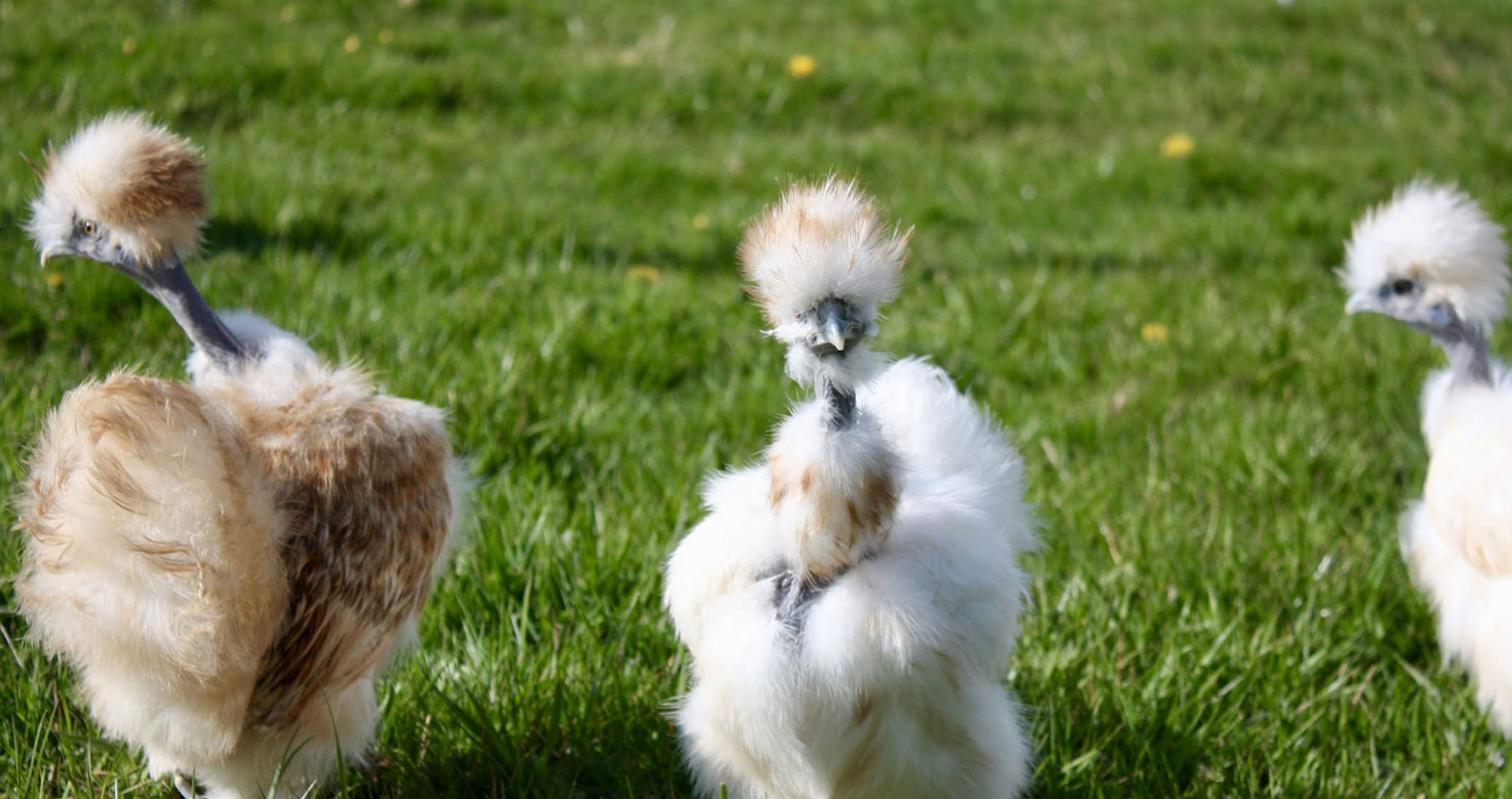


Keeping Chickens in the Garden – Five Common Myths Debunked
Keeping Chickens in the Garden – Five Common Myths Debunked
Chicken-keeping really is a fascinating and rewarding world to be involved in and here at Pipinchick Silkies, we know a thing or two about these wonderful birds and just what they are like to look after. We often come across the same questions that beginners to chicken-keeping have and so in this post we delve deeper into the true delights of owning chickens, get stuck into the detail and de-bunk the top five myths!
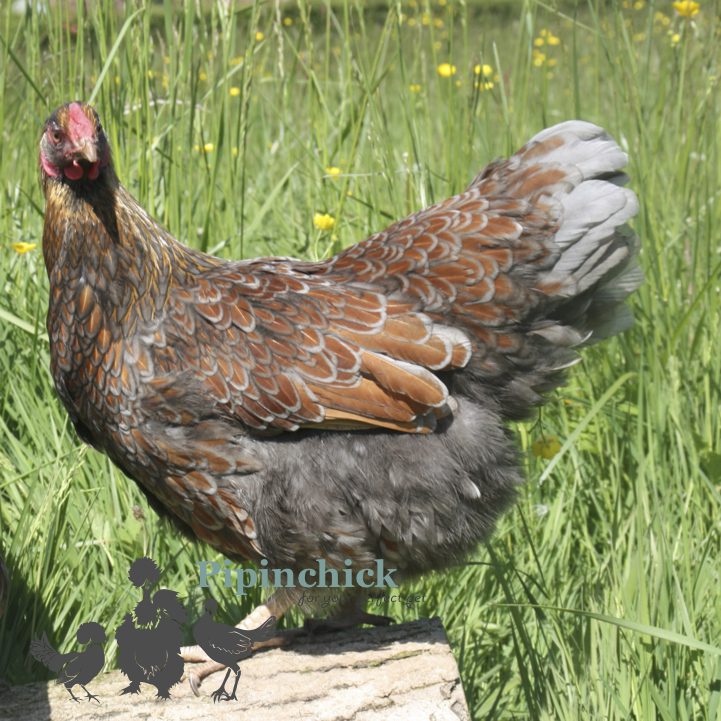
Myth 1 – Chickens are smelly and dirty!
Actually, chickens are really rather clean and tidy! Of course, any living creature can create a mess, but it really is not the case that keeping a small number of chickens in your garden, if properly looked after, need to be either smelly or dirty at all. You simply need to make sure they are cleaned out regularly and their bedding replaced. If you maintain their coop well, there need not be any nasty odour from your feathered friends at all (and they will probably love you all the more for doing so!). Plus, what mess they do make, in terms of their droppings can be really rather useful if you are into your gardening.
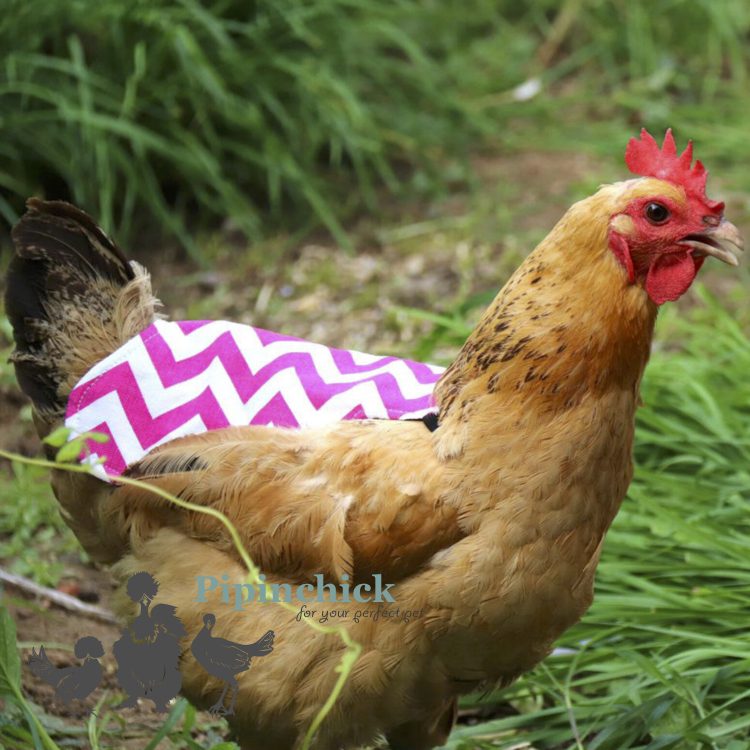
Myth 2 Keeping chickens will attract rats to my garden!
Keeping a few chickens in a coop in the garden is no more likely to attract rats to your outside space than feeding visiting birds, since it is the food source that can attract rodents, rather than actually keeping chickens as such. It is very straight forward to minimise the risk of unwanted visitors, you just need to ensure that any food kept near the coop is properly stored in containers which are rodent proof. Rats are opportunistic and will not hesitate to dig holes in bags of feed to get their paws on it, but a container that cannot be ripped or burrowed into is an instant deterrent.
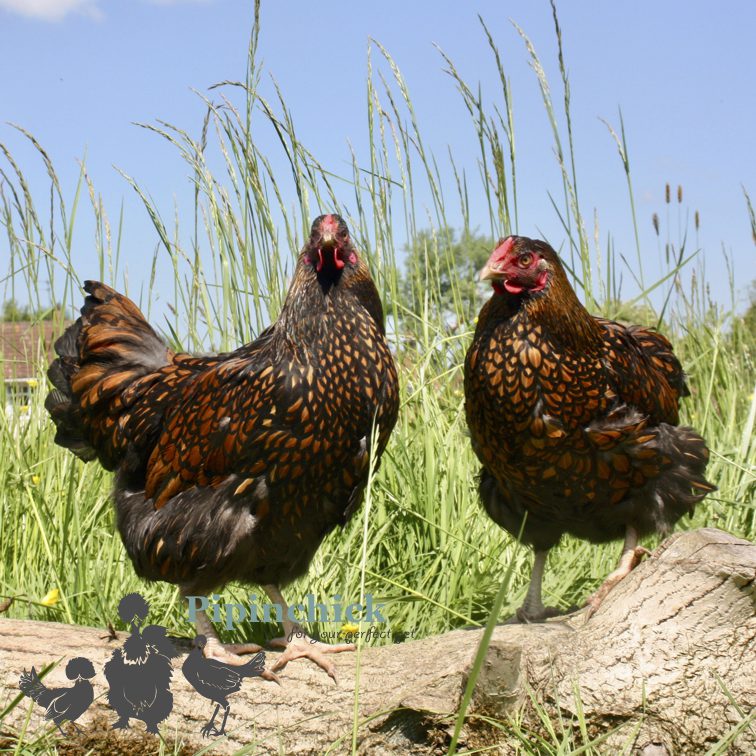
Use a well-designed chicken feeder for your flock; a treadle feeder is a silent feeder which only releases food for the chickens when they activate it, making it much more effective at keeping the food away from any rodents. This type of feeder also reduces waste since it only dispenses food when the birds want it. Rats are not heavy enough to activate the treadle plate so once your chickens have got the hang of using such a feeder their food is safe from other such visitors.
Of course, removing any eggs from the coop is essential too, so be sure to collect them daily so that any rats are not tempted to get access and take them. Since rats can be dangerous to chickens, you will want to ensure there is no chance of them nesting underneath, so elevate the coop from the ground and make sure to regularly check the coop for holes or gaps that rats could exploit.
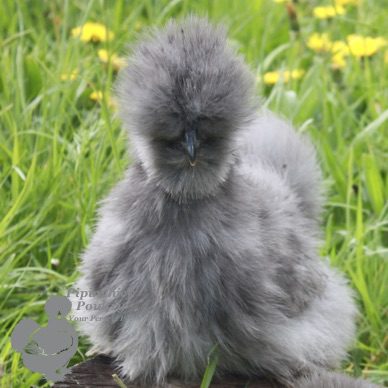
Myth 3 – Chickens will be noisy and annoy the neighbours
Unlikely, since hens only cluck very softly, mostly in the morning, or when they are laying eggs or communicating with each other. Some breeds are more vocal than others, so if noise is a concern you may want to select a quieter breed, such as Ameraucana.
If you are worried about roosters, who are certainly rather noisier (and they do NOT only crow at dawn, since their role is to warn of danger amongst other things) then you do not need to keep any of these, your hens will lay eggs perfectly well without them, these eggs are just infertile and cannot develop into chicks. If you do have a rooster, then eggs need to be collected daily and kept in a cool place, so that they do not develop into chicks.
Myth 4 – Chickens will wreck the garden
In fact, chickens can be a real asset to your garden, they will happily eat insects, snails and weeds. They scratch at the soil, which can both aerate it and reduce pests. If they are allowed to roam where you plant too, they will leave droppings which act as excellent fertilizer for many plants. Otherwise, you can add these droppings to your compost to help enrich this.
Of course, free roaming hens are happier hands, so to some extent, space does matter but if you do not want the chickens to have complete freedom in your garden, then they will be pretty content with at least 10 square feet to roam in, adjusted based on breed and coop design of course.
Myth 5 – Keeping chickens will mean fresh eggs every day
Egg production really varies. Some hens take a long time before they become comfortable enough to start laying and then there are significant differences between breeds. Some, such as our Ardennaise Bantams lay more consistently, up to 180 small white eggs a year, or for a more cuddly option, the Bearded Silkie, with up to 100 medium eggs annually. Depending on how much of a pet you want your chickens to be, whether you have children, want a garden companion, all of this will help determine the right birds for you, not egg production alone.
Egg production also varies seasonally, chickens lay fewer eggs during winter due to the reduced daylight hours. Annual molting that chickens undergo will also affect how many eggs are produced as will the general health and age of your hens. If you are interested in keeping chickens just for the eggs then you need to be fully aware that the eggs can be somewhat inconsistent.
Here at Pipinchick Silkies, we have chickens for sale and hens for sale and like to do our very best to help our customers, whether or not they are new to keeping chickens, with any questions they have on suitability and environment. We will help advise you on which breeds are likely to get along, what you need to do to give your birds the best start in their new homes and we offer all our customers 100 percent aftercare too, so if after reading these debunked myths there are any other pressing questions you have, do not hesitate to get in touch, we would love to help you out!

